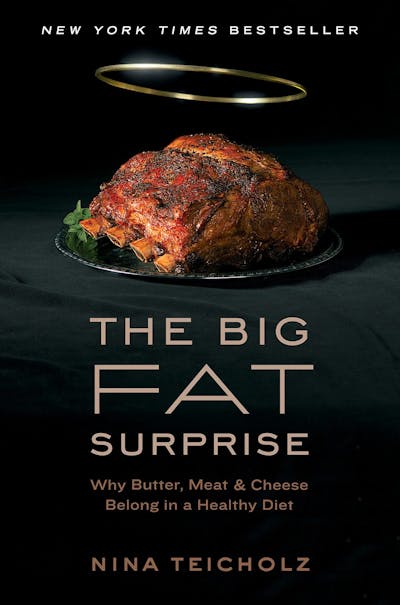The beginning and end of the fear of fat

This is the book that contributes to finally dismissing the old fear of fat. When the book The Big Fat Surprise came out in June last year, major American newspapers praised it. It has become a New York Times best seller and The Wall Street Journal appointed it one of the best books of the year.
This book redefines food for many influential people and the fear of fat is losing its grip on the world.
Finally, I too have read the book. It’s a big book that initially is very similar to the fantastic Good Calories, Bad Calories (2007). But once you’ve read the first chapters you realize that this book is so much more. It’s an updated version with a somewhat different focus – and for most readers probably far more entertaining, clarifying and upsetting.
This is the definitive story on how fear of fat was based on how ambitious researchers and well-meaning politicians took short cuts and ignored the lack of real evidence. And as gigantic economic interests entered the picture things went very wrong.
The Problem with Fear of Fat
We know the result: instead of harmless fat – that we’ve been unnecessarily afraid of – people began to eat more sugar, wheat flour and other refined carbohydrates, which increase the fat-storing hormone insulin. Voilá: an epidemic of obesity and diabetes.
The book also goes in detail through the tragicomic and terrifying hunt for a replacement for natural saturated fat.First came industrial trans fats, where the food industry managed for decades to silence the health risks of their consumption. When this didn’t work any longer they could of course not go back to natural saturated fat – everybody was still afraid of it.
Instead, they had to experiment with new industrially produced fats that may prove to be even worse than trans fats… artificially transesterified vegetable oils (which never existed in large quantities in nature) to margarines and cooking with polyunsaturated omega-6 fats, which don’t tolerate heat without producing thousands of potentially toxic substances. Today we don’t know how dangerous this will prove to be.
Should Everyone Eat a Mediterranean Diet?
The book is also very entertaining in the review of how the now almost sacred Mediterranean diet, at least from the beginning, was the product of more hype than science.
Reality may be that the old-fashioned food culture anywhere (with plenty of natural fats) is better than today’s Western industry food. Perhaps the old-fashioned Nordic diet is at least as good … or the Peruvian diet… or the Mongolian diet.
However, Mongolia has not had any major olive oil industry that through the PR company Oldways and its extremely luxurious annual conferences for scientists and food journalists, has spread the message and built up the health aura around the Mediterranean diet. Many people have apparently fallen in love with the Mediterranean aura – and some are in retrospect a bit ashamed of it.
The chapter on how the Mediterranean diet became holy perhaps contained the biggest news to me.
Clearer Than Ever
The book’s main message – that butter, meat and cheese are healthful foods – is perhaps not a “surprise” any more, not for me and not for you. But the story has never been as crystal clear or entertaining as in the book The Big Fat Surprise. I highly recommend it.
The book’s website with excellent reviews
What do you, who have read the book, say? Please feel free to leave a comment!
Previously
The Fear of Fat Goes Into Free Fall
Big Fat Surprise Among the Best Books of the Year
Saturated Fat and Butter: From Enemy to Friend
Dramatically Improved Heart Health in Sweden!
WSJ: The Last Anti-Fat Crusaders
TIME: Eat Butter. Scientists Labeled Fat the Enemy. Why They Were Wrong.